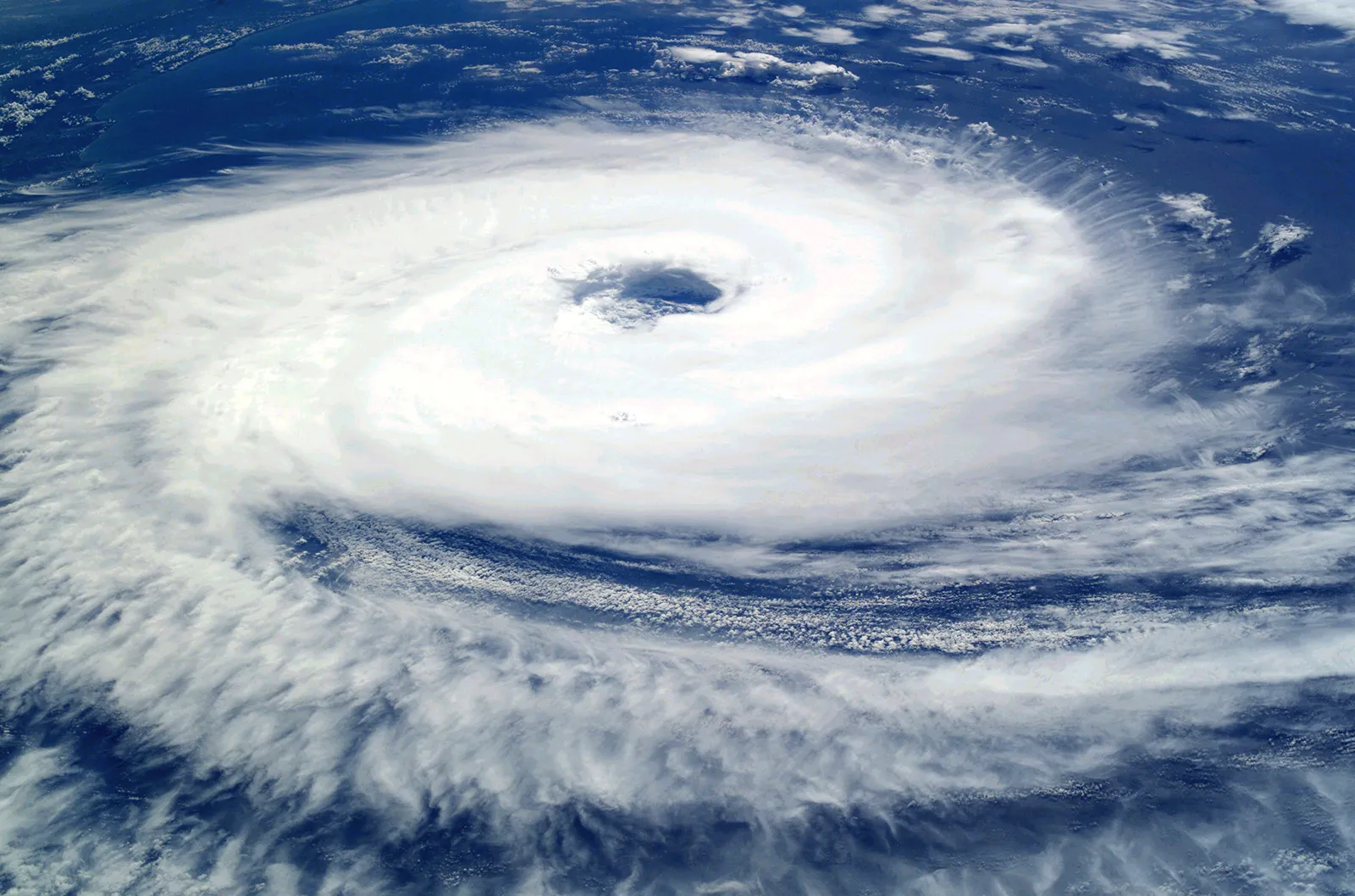Introduction: Cyclones are natural disasters that can have a significant impact on the travel industry. From disrupting air and sea travel to causing damage to tourist infrastructure and attractions, cyclones can cause disruption and chaos for travelers and tourism businesses alike. In this guide, we will explore the basics of cyclones, their impact on travel, and how the travel industry is responding to these events.
Table of Contents
What is a Cyclone
Cyclones are natural disasters that can have a significant impact on the travel industry. From disrupting air and sea travel to causing damage to tourist infrastructure and attractions, cyclones can cause disruption and chaos for travelers and tourism businesses alike. In this guide, we will explore the basics of cyclones, their impact on travel, and how the travel industry is responding to these events.
A cyclone is a weather phenomenon characterized by a low-pressure center, with winds spiraling inward in a counterclockwise direction in the Northern Hemisphere and clockwise in the Southern Hemisphere. Cyclones can range in size from small, localized thunderstorms to large, complex weather systems that can span hundreds or thousands of miles.
The term “cyclone” is often used interchangeably with “hurricane” or “typhoon” to describe a severe tropical storm with sustained winds of at least 74 miles per hour (119 kilometers per hour). In the Indian Ocean and Western Pacific, the term “cyclone” is used to refer to these storms, while in the Atlantic and Eastern Pacific, they are typically called hurricanes. In the Western North Pacific, these storms are referred to as typhoons.
Cyclones can cause significant damage due to their strong winds, heavy rainfall, and storm surges. They can also lead to landslides, flooding, and other hazardous conditions. Cyclone forecasting and tracking is an important part of meteorology and emergency response planning.
Also Read: What is a Pothys: Why is it a Good Option For You?
How Cyclone Destroys Everything in its Path
Cyclones are extremely destructive weather events that can cause significant damage to everything in their path. The following are some of the ways in which a cyclone can cause destruction:
Strong winds: Cyclones are characterized by strong winds that can reach speeds of over 200 miles per hour (320 kilometers per hour) in some cases. These winds can uproot trees, damage buildings, and destroy infrastructure.
Storm surges: Cyclones can cause storm surges, which are large waves that can inundate coastal areas and cause flooding. Storm surges can be particularly dangerous because they can quickly submerge low-lying areas and wash away buildings and other structures.
Heavy rainfall: Cyclones can also cause heavy rainfall, which can lead to landslides, flash floods, and other dangerous conditions. Heavy rainfall can also cause infrastructure such as roads and bridges to collapse, making rescue and relief efforts more difficult.
Tornadoes: Cyclones can also spawn tornadoes, which are small but extremely destructive storms that can cause widespread damage in a localized area.
Electrical outages: Cyclones can cause electrical outages by knocking down power lines and damaging electrical infrastructure. These outages can last for several days or even weeks, making it difficult for people to access basic necessities such as food and water.
Overall, cyclones are extremely dangerous weather events that can cause significant damage and destruction. It is important for people in affected areas to follow the instructions of local authorities and take appropriate precautions to stay safe during and after the storm.
Also Read: FF Reward – Free Fire Redeem Code Today & Redemption Site Link
How Cyclone Affects the Economy and Tourism Industry
Cyclones can have a significant impact on the economy and the tourism industry. Here are some of the ways in which cyclones can affect these sectors:
Damage to infrastructure: Cyclones can damage roads, bridges, buildings, and other infrastructure, leading to significant repair and rebuilding costs. This can have a negative impact on the economy as a whole, as well as on specific industries that rely on this infrastructure, such as tourism.
Disruption of supply chains: Cyclones can disrupt supply chains by damaging ports and transportation networks, making it difficult for businesses to import and export goods. This can lead to shortages and price increases for essential goods, which can impact the overall economy.
Loss of crops: Cyclones can damage crops, leading to significant losses for farmers and the agricultural industry. This can lead to food shortages and price increases, further impacting the economy.
Impact on tourism: Cyclones can have a significant impact on the tourism industry, particularly in areas that are popular with tourists. Damage to infrastructure, including hotels and resorts, can lead to cancellations and a reduction in tourism revenue. In addition, safety concerns and travel advisories can discourage tourists from visiting affected areas, further impacting the tourism industry.
Recovery costs: The costs of recovery and rebuilding following a cyclone can be significant, and these costs are often borne by the government and taxpayers. This can impact public finances and lead to cuts in other areas of the economy, further exacerbating the impact of the cyclone.
Overall, cyclones can have a significant impact on the economy and the tourism industry, and the effects can be felt for months or even years after the storm. It is important for governments and businesses to plan and prepare for these events, in order to minimize the impact on the economy and on people’s lives.
What are the Best Ways to Prepare for a Cyclone?
Preparing for a cyclone is essential to ensure the safety of yourself, your family, and your property. Here are some of the best ways to prepare for a cyclone:
Stay informed: Keep up-to-date with the latest information on the cyclone, including its path, expected strength, and potential impacts. Listen to local radio and television stations, and follow official social media accounts for updates.
Evacuation plan: Have an evacuation plan in place in case you need to leave your home or area. Identify safe places to go, such as a designated evacuation center or the home of a friend or family member outside the affected area.
Emergency kit: Prepare an emergency kit that includes essential items such as food, water, medication, first aid supplies, and important documents. Keep the kit in a safe, easily accessible place.
Secure your property: Secure loose objects outside your home that could become projectiles in high winds. Close and secure all doors, windows, and shutters.
Prepare your vehicle: If you have a car, make sure it is fueled and in good condition in case you need to evacuate.
Stock up on supplies: Stock up on non-perishable food, water, and other essential supplies in case you are unable to leave your home for a period of time.
Know your insurance policy: Make sure you understand your insurance policy, including what is covered and what is not covered in the event of a cyclone.
Stay calm: Remain calm and follow the advice of local authorities. Panic can lead to poor decision-making and put your safety at risk.
By taking these steps, you can help ensure that you and your family are prepared for a cyclone and are able to stay safe during the storm.
Conclusion
cyclones are natural disasters that can have significant impacts on businesses, particularly those in coastal areas or regions prone to cyclones. Therefore, it is important for businesses to take proactive steps to prepare for these events and minimize the potential impact on their operations.
Some of the steps that businesses can take to prepare for a cyclone include developing a business continuity plan, securing their property and assets, ensuring that their insurance coverage is up-to-date and adequate, and communicating with their employees and customers about the steps they are taking to prepare for the storm.
By taking these steps, businesses can increase their resilience and reduce the potential for disruption or damage to their operations. Cyclones can be unpredictable and dangerous, but with proper preparation and planning, businesses can protect their assets, ensure the safety of their employees and customers, and minimize the impact on their bottom line. So, it’s crucial to start preparing today to protect your business from cyclone.





